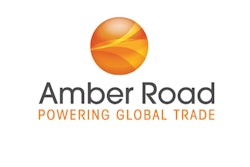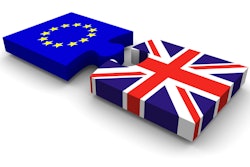
The United Kingdom's (U.K.’s) unexpected vote to leave the European Union (EU) was an economic earthquake that threw the British political establishment into turmoil and is still roiling markets worldwide. Markets are used to political and economic instability in emerging economies, but the EU has long been a stable and predictable market. The Brexit vote is a stark warning to supply chain management professionals that dramatic challenges can emerge from the most unexpected places.
Although nothing in the trading environment changed yet, supply chain managers should start developing a strategy now to protect their supply chain and business assets.
Diversify to Protect Supply Chains
Once Brexit is complete, expect supply chain disruptions. In anticipation, some business leaders are already considering moving some or all operations out of the U.K. Companies that operate using global supply chains should prepare for disruptions and fluctuations in tariffs, labor cost and availability, and increased trade barriers.
Risk management options include:
- Dual sourcing. Manage the supply of key components by creating relationships with local suppliers. Then, if a shipment is delayed at the border or suddenly slapped with high import tariffs, you can respond quickly, without much disruption.
- Distributed manufacturing. Some companies are considering leaving the U.K.: Vodaphone is one prominent example. Alternatively, companies could decide to open new facilities in countries with more stable trade deals and position material in the U.K. to minimize customs obstacles.
The EU's free-trade agreements (FTA) pose another problem. After exit, the U.K. can no longer participate in the FTAs negotiated with other countries. In addition to negotiating individual trade pacts with remaining EU countries (this may happen with a single, all-encompassing agreement), the U.K. may have to create/modify trade pacts with non-EU nations. These can also affect supply chains and tariff regulations.
Because of the uncertainty involved, choose the sourcing solutions that offer the most diversity and flexibility.
Closely Monitor Changes in U.K. Laws and Regulations
The EU marketplace streamlines trade and compliance by eliminating tariffs, allowing free movement of people, goods and services, and providing a common regulatory framework for all 28 member countries. When Britain exits the EU, it loses this advantageous relationship with an entity that purchased almost half its total exports in 2015.
A great many U.K. laws and regulations are directly related to EU regulations, and the U.K. has to "substantially remake the legal frameworks" that govern financial transactions, trade, labor laws and intellectual property.
Specific barriers to trade could include:
- Intellectual property and trademarks. The EU nations are protected by common standards, such as the European Union Trade Marks (EUTM). When the U.K. leaves this system, the brand and trademark holders who depend on the EUTM for protection would suddenly be unprotected in the U.K. They can either reapply under a U.K.-specific regulation or the U.K. could unilaterally grant existing EUTM holders the same status in the U.K. Nobody knows for sure at this point.
- Employee movement and employment law. The movement of key personnel could be delayed by visa or other paperwork requirements. Less free movement across the border could also make it more difficult to find qualified workers.
- Loss of EU financial passports. Financial service providers operating within the EU are able to use financial passports to sell services across borders at low cost and with minimal red tape. This could make it more difficult for U.K. companies to obtain financing, credit lines, etc., but that depends on how the exit is configured.
Naturally, the U.K. has a huge incentive to minimize these disruptions as much as possible. Continuing to comply with many EU regulations would make trade easier. However, many Leave voters believe that the EU usurps the U.K.'s national sovereignty and imposes useless regulations. Negotiators have to tread lightly on this issue to avoid public backlash.
Prepare for Increased Compliance Paperwork and Red Tape
With all the uncertainty, there is good news for supply chain professionals: The current trade agreements and compliance requirements should remain stable for the next two years. That gives everyone time to consider the impact on trade compliance strategies:
- Customs paperwork is going to be more complex because each country can set its own requirements for British imports/exports.
- Tariffs and duty rates could rise as countries impose protectionist tariffs on imports.
- Moving goods in and out of the U.K. is going to take longer—even on inter-company transfers.
The exact relationship of post-Brexit U.K. to the EU can't be reliably forecasted yet. Brexit leaders have no plans in place. Everything is subject to negotiation with the EU and some leaders are vowing to play hardball. They're concerned if they agree to a deal that allows Britain to keep easy access to the EU market, while releasing it from other requirements (what critics call the "have your cake and eat it, too" strategy), then other countries may demand similar concessions.
The one thing we do know is that everyone's U.K. business models are going to change, but the extent and exact nature of the coming disruption is in the hands of politicians and regulators.












